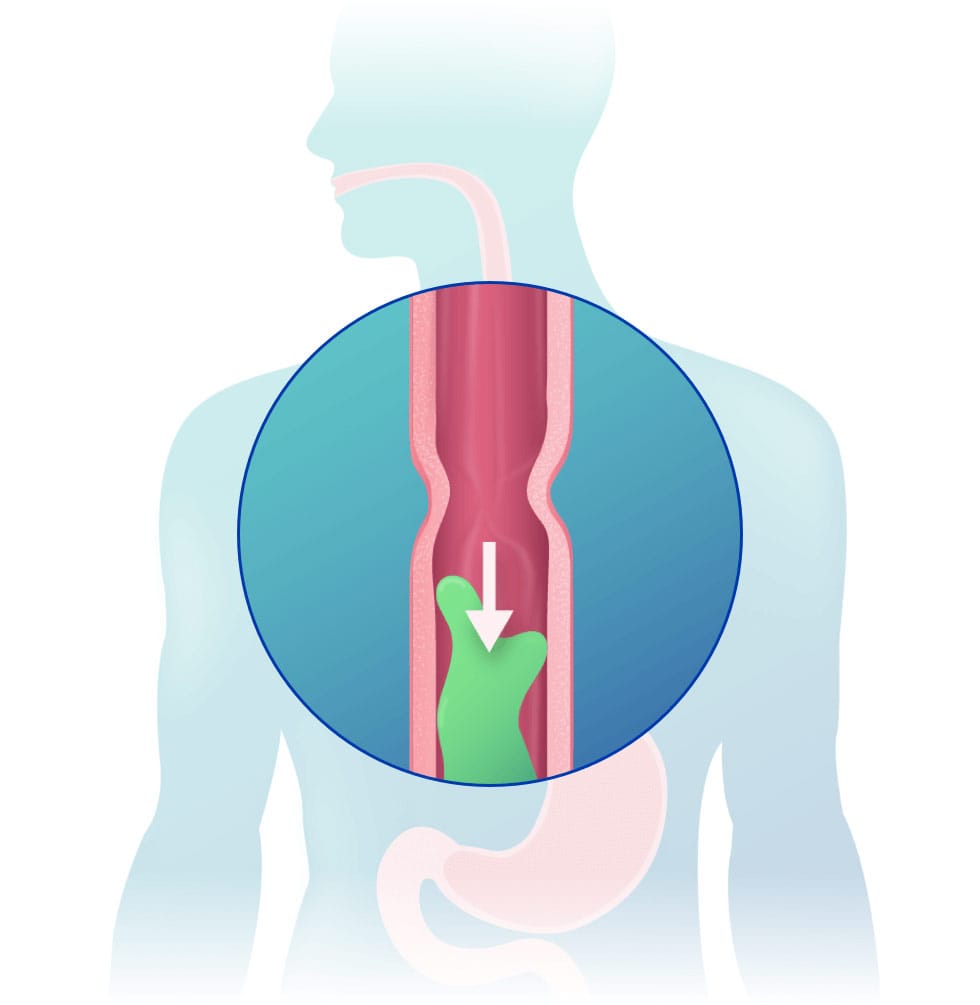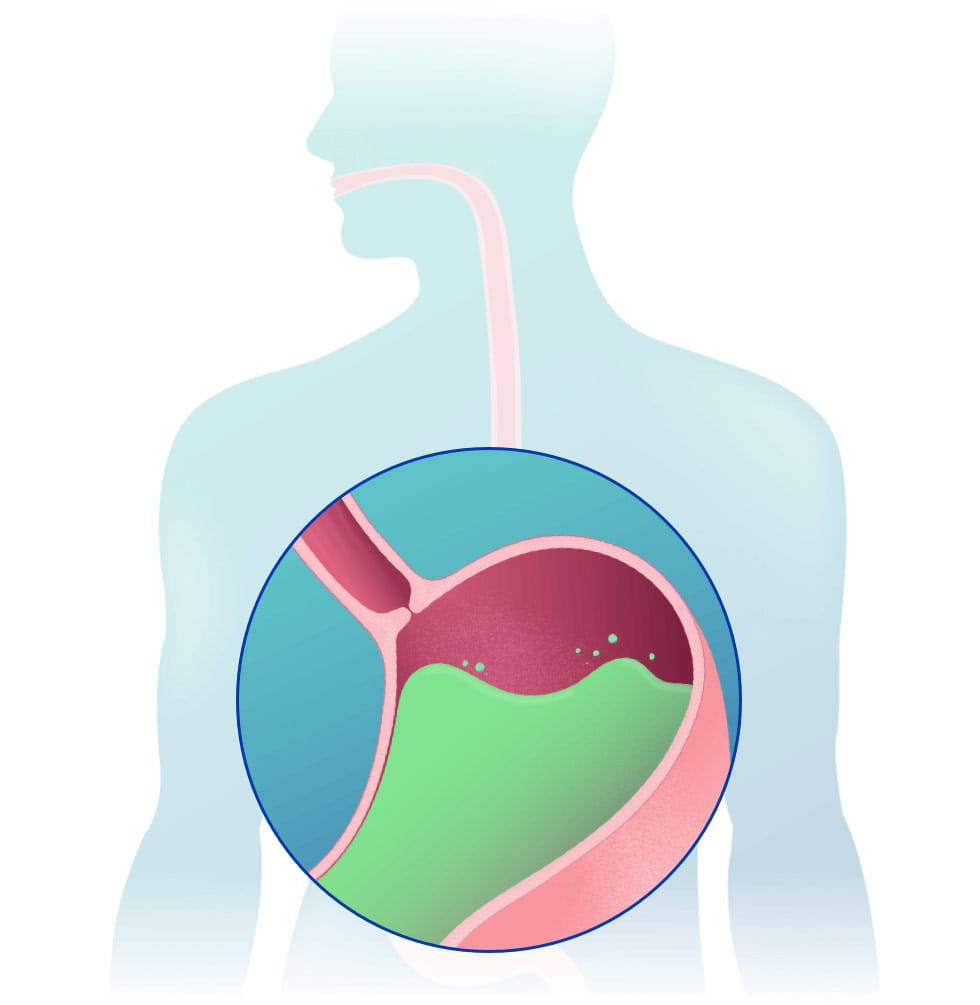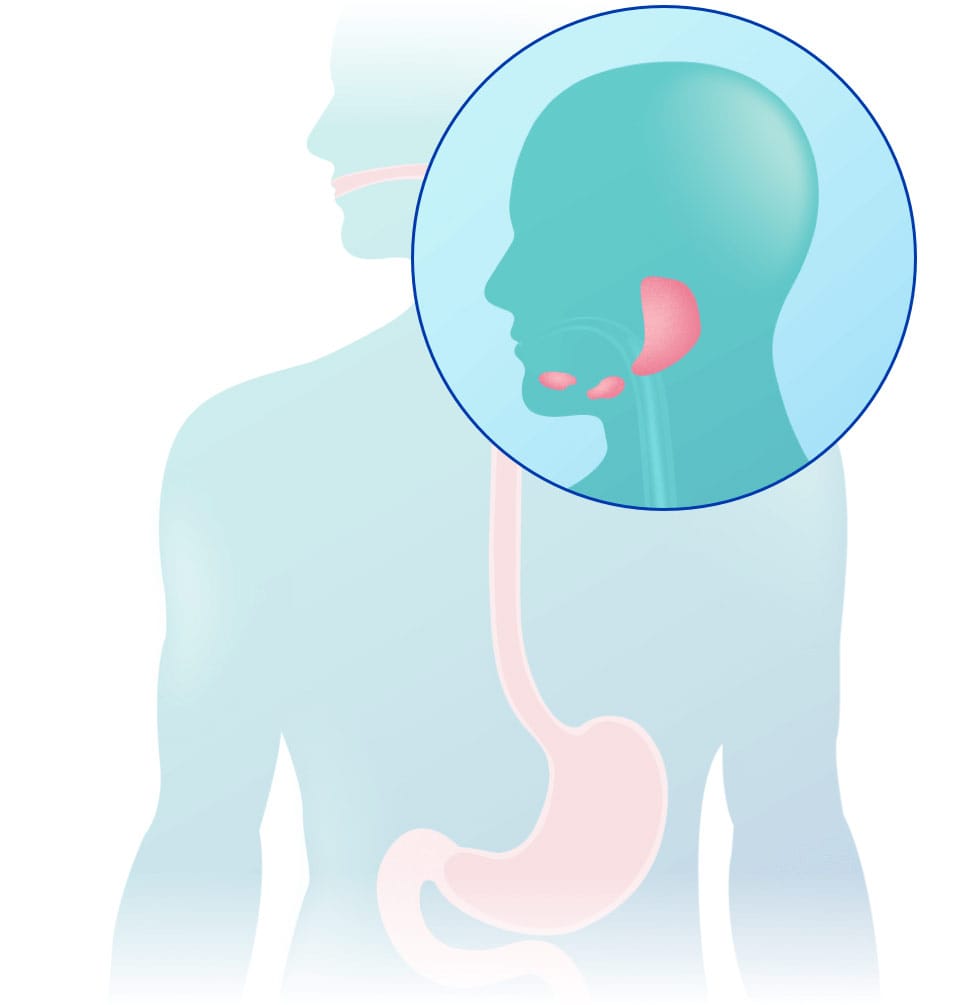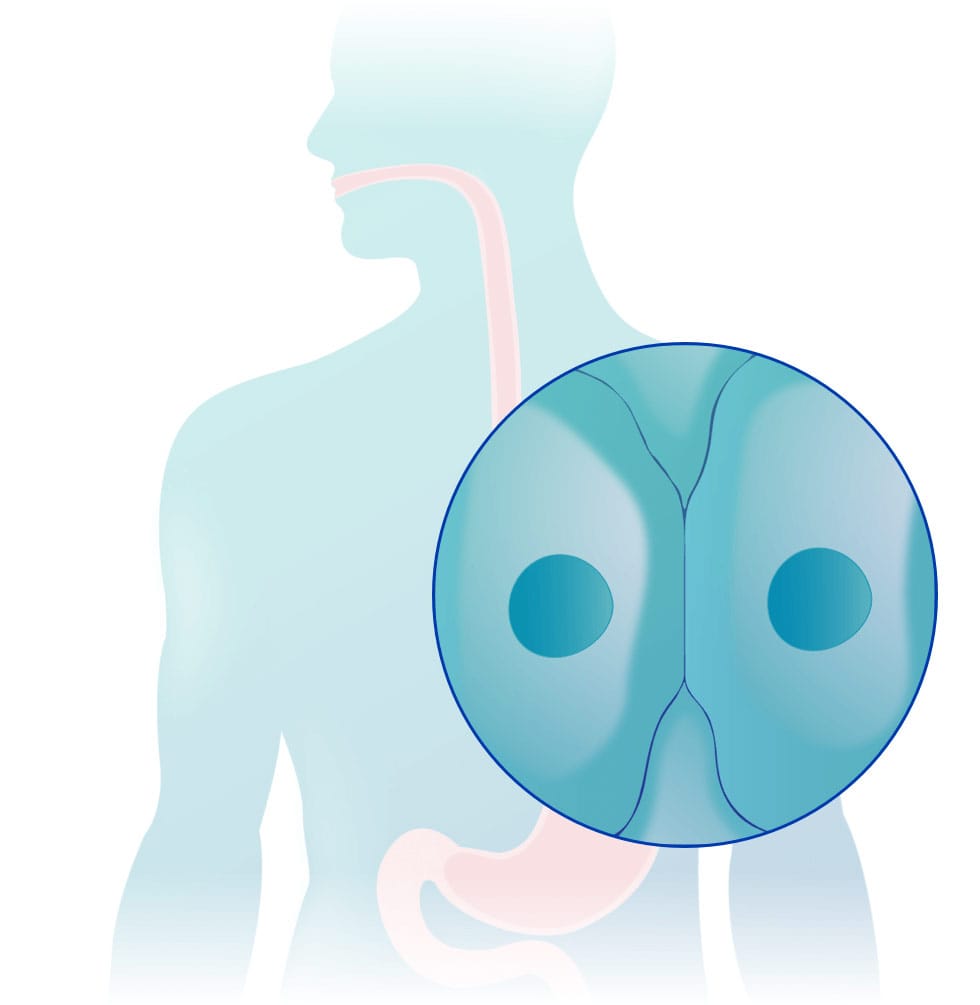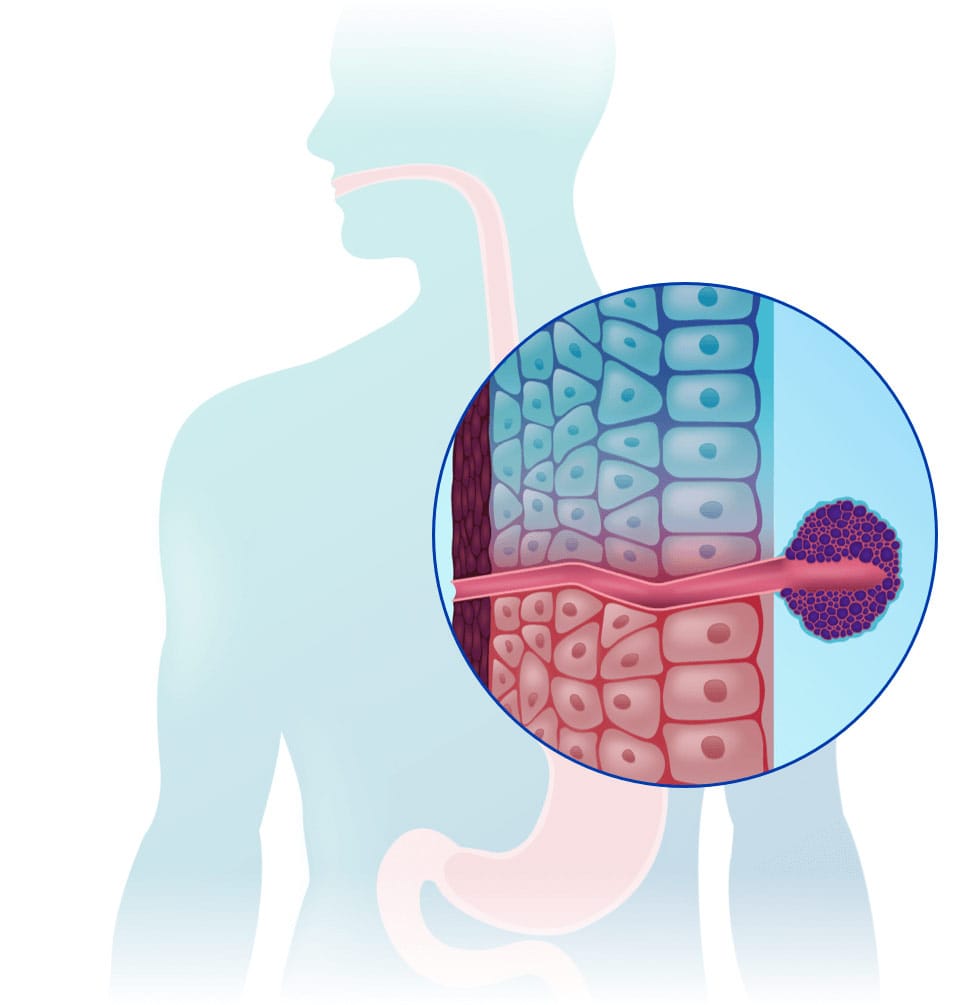Natural esophageal defenses:
Strengths and limitations
When certain natural mechanisms fail to adequately protect the mucosa, the esophagus is more susceptible to potentially harmful, acid-activated pepsin.
Acid + Pepsin = Painful Esophageal Symptoms
Experimental studies suggest that at a pH of 1.3 or above, acid alone will not injure the esophagus. However, the harmful effects of pepsin on the esophageal mucosa are maximal at pH 1-3.3. Raising the pH in the esophagus can decrease the activity of pepsin.1
Supplement your treatment program with Mylanta for symptom relief
- Immediately neutralizes the residual acid from gastric refluxate
- Provides symptomatic relief of hyperacidity associated with peptic esophagitis, peptic ulcer, gastritis, gastric hyperacidity, and hiatal hernia
- Delivers powerful acid-fighting ingredients and contains simethicone to relieve symptoms of excess gas
Recommend liquid Mylanta for its strong acid-neutralizing power
View Mylanta ProductsReferences
- 1. Hirschowitz BI. Pepsin and the esophagus. Yale J Bio Med. 1999;72:133-143.

